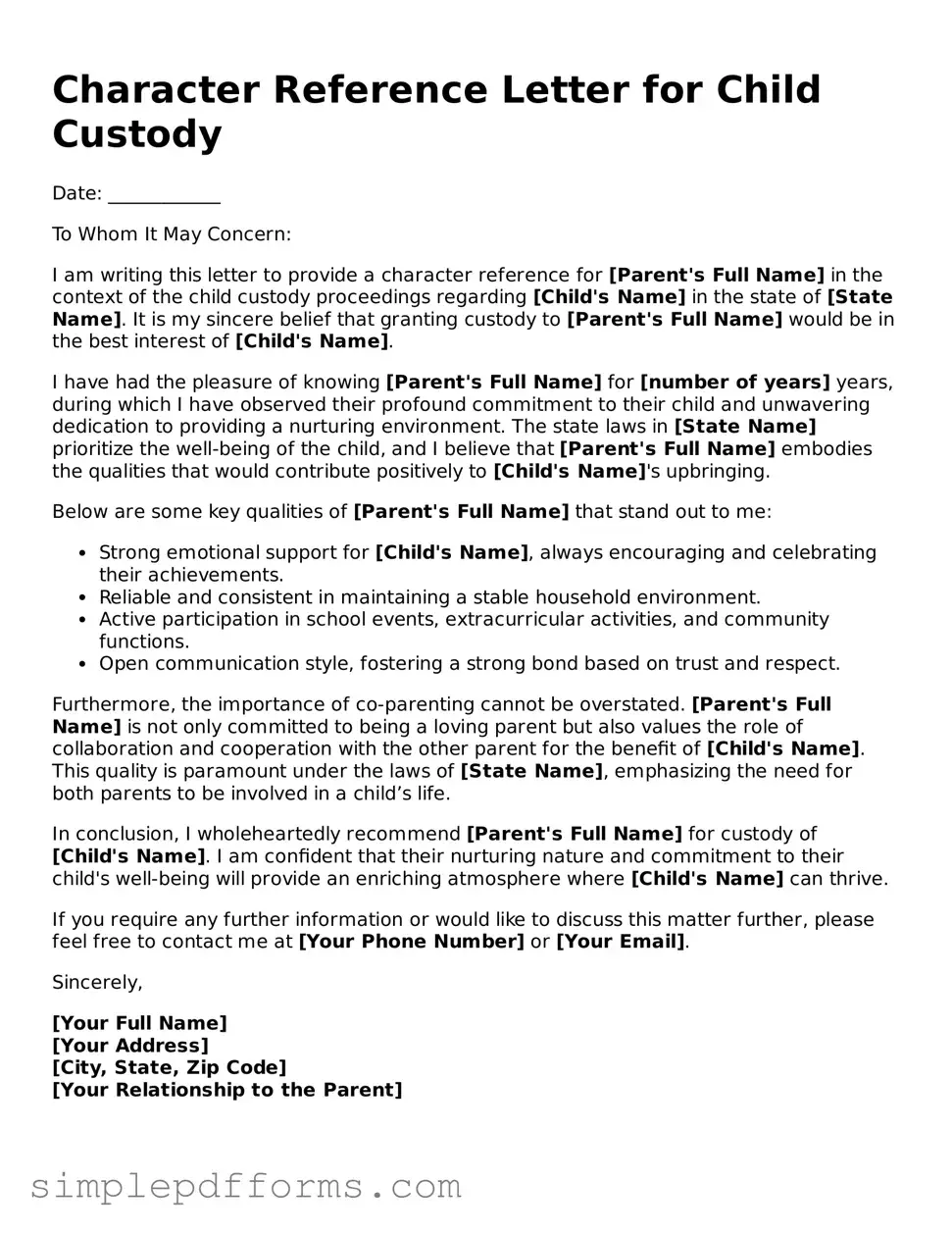Free Character Reference Letter for Child Custody Form
The Character Reference Letter for Child Custody is a document that provides insight into a parent's character and parenting abilities from the perspective of someone who knows them well. This letter can play a crucial role in custody proceedings, offering the court a personal account of the parent’s relationship with their child. It serves as a testament to the parent’s suitability and commitment to their child's well-being.
Open Character Reference Letter for Child Custody Editor Now

Free Character Reference Letter for Child Custody Form
Open Character Reference Letter for Child Custody Editor Now

Open Character Reference Letter for Child Custody Editor Now
or
Get Character Reference Letter for Child Custody PDF Form
Your form is waiting for completion
Complete Character Reference Letter for Child Custody online in minutes with ease.